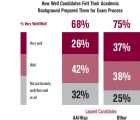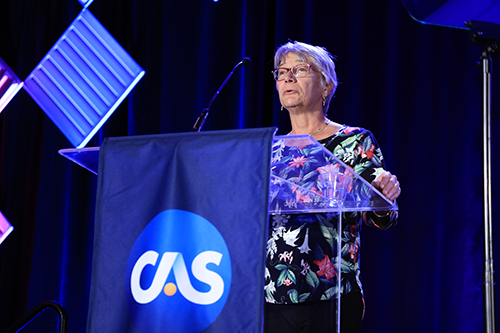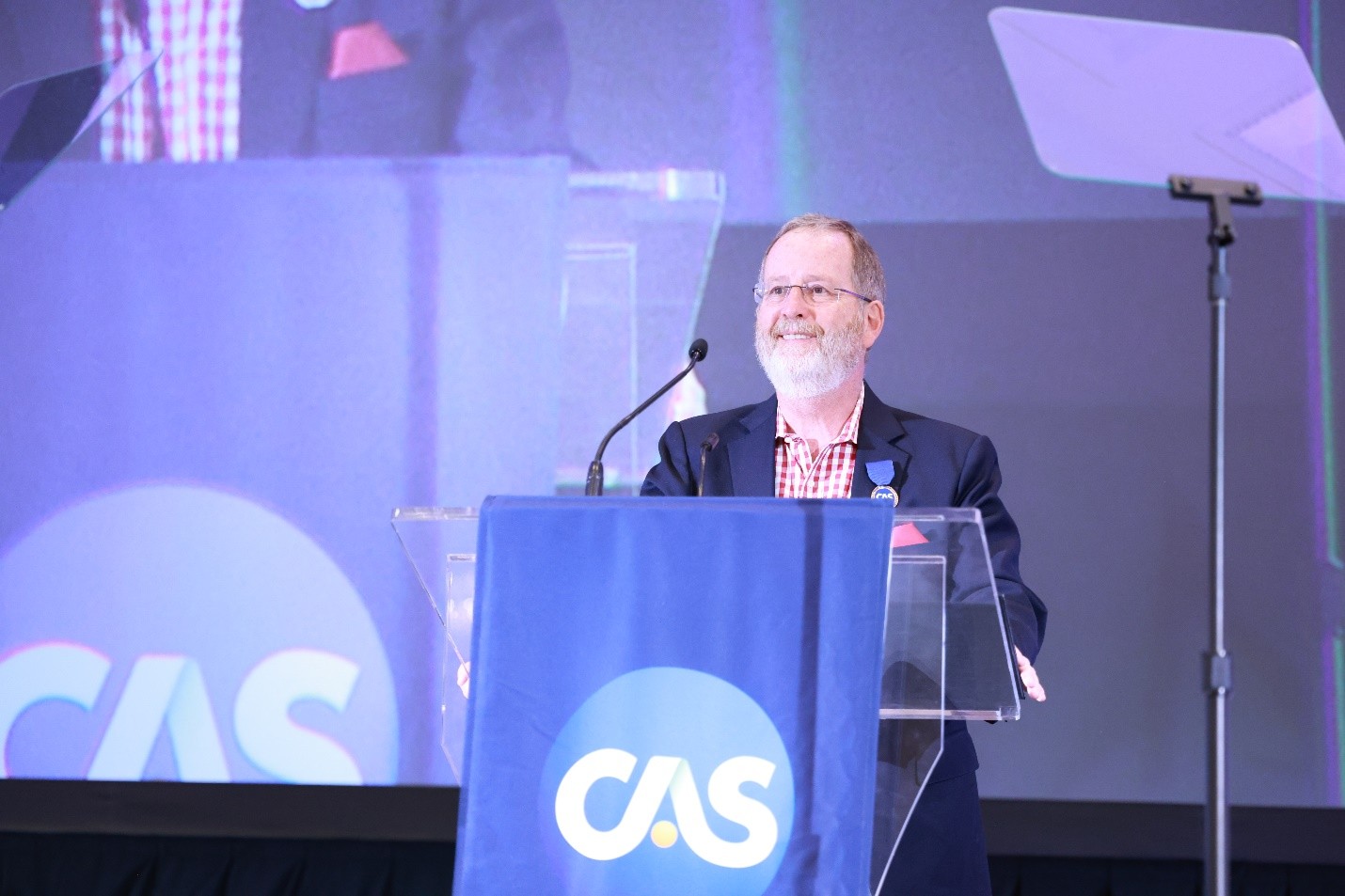
“There go my people, I must hurry and catch up with them for I am their leader.”—Mahatma Gandhi
For more than 45 years, I have had the privilege of serving the CAS in numerous capacities, from a committee member all the way through leadership positions including the president. I have participated in and witnessed the CAS pass through several growth cycles in all phases of its operations. One of those phases included the successful introduction of professional staff to the CAS in 1991.
Throughout, I have gained a special appreciation for a key ingredient that has served the CAS well: The CAS membership has nearly always been united in supporting the board’s key endeavors, virtually all members pulling in the same direction. In earlier days, the relatively small size of the CAS enabled formal and informal communications to take place easily among the membership. So, when the board contemplated serious initiatives, they moved forward with confidence, generating little or no dissension. If the board did not sense reasonable unity of objective from the membership, it didn’t go any further. As the CAS grew, sustaining this aspect in the life of the CAS became more difficult.
In recent times, three major board initiatives ran into problems when the board tried to effect major changes without first obtaining the “the consent of the governed.” One was the agreement-in-principle that the CAS entered into with the Society of Actuaries in 2018 to merge the two organizations. The board moved without assessing the views of the membership. Once the membership became aware of the board’s action, strong opposition emerged almost immediately and, as a consequence, the board leadership decided to canvass the membership. It soon became very clear that the membership opposition was strong, deep and serious. To the credit of our leadership, the entire project was pulled, and ultimately no permanent harm was done. Looking back, it might have been wiser to poll the membership views in advance of entering into the agreement with the SOA.
The second was the board’s decision to rescind the ratemaking principles in 2020 only to reverse itself in 2021 after serious objections and concerns were raised by members.
The third was the recent attempt to reorganize the CAS in significant ways, increasing the role of the executive staff and diminishing the role of CAS members in key leadership positions. Even though the board was nearly unanimous in deciding to approve and to recommend the changes for adoption by the membership, the measure failed to meet the stringent standard for amending the bylaws.
One of the troubling aspects of this episode was that the membership was not given a serious opportunity to comment on the proposed changes. That, in turn, caused a grassroots effort to open new avenues of communication (i.e., creating a website to serve as a home for views of the membership) that members could use to express themselves on the issues. This effort, without a doubt, was a significant factor that produced the defeat of the proposed organizational changes. Regardless of one’s view on the merits of the actual proposals, the absence of a serious opportunity for the rank-and-file membership to participate in the deliberative process (I mean beyond just voting up or down) was, again, a major defect in the process. The results, of course, demonstrated that.
These three instances indicate that the board may have lost contact with the membership. Embarrassing outcomes such as these are evidence that this is the case. If the CAS membership (beyond using a committee or a task force) is truly engaged in the process of formulating a proposition, then any proposition that is approved by the board should reflect the views of the membership and easily sail through, without much objection. If that’s not the case, then the board may not have its finger on the pulse of the membership, and the membership is deeply divided on the pertinent issues.
Unhappily, this is the place in which the CAS again finds itself. The hopeful thing is that there is a very good way to avoid such situations in the future.
I believe the board needs to find a way to connect with the membership in a serious and direct way and get feedback on all key changes that it might propose for adoption before it actually does so. It is important to note that I am not advocating that the board formulate a policy or a change and then go out to “sell” it. Quite the contrary. I am advocating the board find a way to involve the membership in an active way in the very construction and modification of key policies and changes.
Fortunately, we have a great model that is available for such use. A model that has been long in use and has been very effective in shaping outcomes while dealing with a much larger constituency. Here I am referring to the exposure process the Actuarial Standards Board (ASB) has used effectively for many years. For a refresher, the ASB (through its various committees) formulates a proposal; adopts it or a close variant of it for exposure; sends it out to every member of the American Academy of Actuaries; collects comments, reactions and suggestions; revises the first draft and resubmits it to the target population and provides a reconciliation for every comment that is received. This process may be repeated as often as necessary until a final product has been produced that is reflective of all views. The process has worked very well for many years.
The specific suggestion is that the board of directors adopt an explicit procedure that any major changes to policy, organization or other important aspects of life of the CAS be subject to an exposure process similar to that the ASB successfully has used for many years.
Finally, an area where such a policy could be very helpful is the recent adoption of the Diversity, Equity, and Inclusion policies by the board. While I am fairly certain that these changes were well-intentioned by its authors, from the informal soundings I have been able to make, these ideas are producing much controversy and counter-productive division among the membership. Regardless of what the board perceived as the merits of these policies it is yet another example where the board may have lost contact with the membership. To be sure, the ideas advocated by those policies are not self-evident truths. To adopt them without direct input from the membership at large is a serious omission, and the adverse effects of such omission will continue to harm the CAS in ways we cannot even imagine at the present time. I am not necessarily advocating the repeal of such policies, nor am I suggesting their further advancement. I am, however, advocating that these policies be revisited with adequate input from the membership on all aspects of these issues, beginning with “given the objective requirements for admission to membership in the CAS, should the CAS have any policies like these at all,” all the way to the actual expressions of policies on the subject. The outcome will be the outcome. But the consultative process that is essential to producing sound, widely supported policies — policies that have been examined closely in broad daylight — is indispensable.
Should the board act on this recommendation, I earnestly believe that the CAS can, once again, remain undivided.
Stan Khury is a retired CAS member and past president who resides in Fort Worth, Texas.












